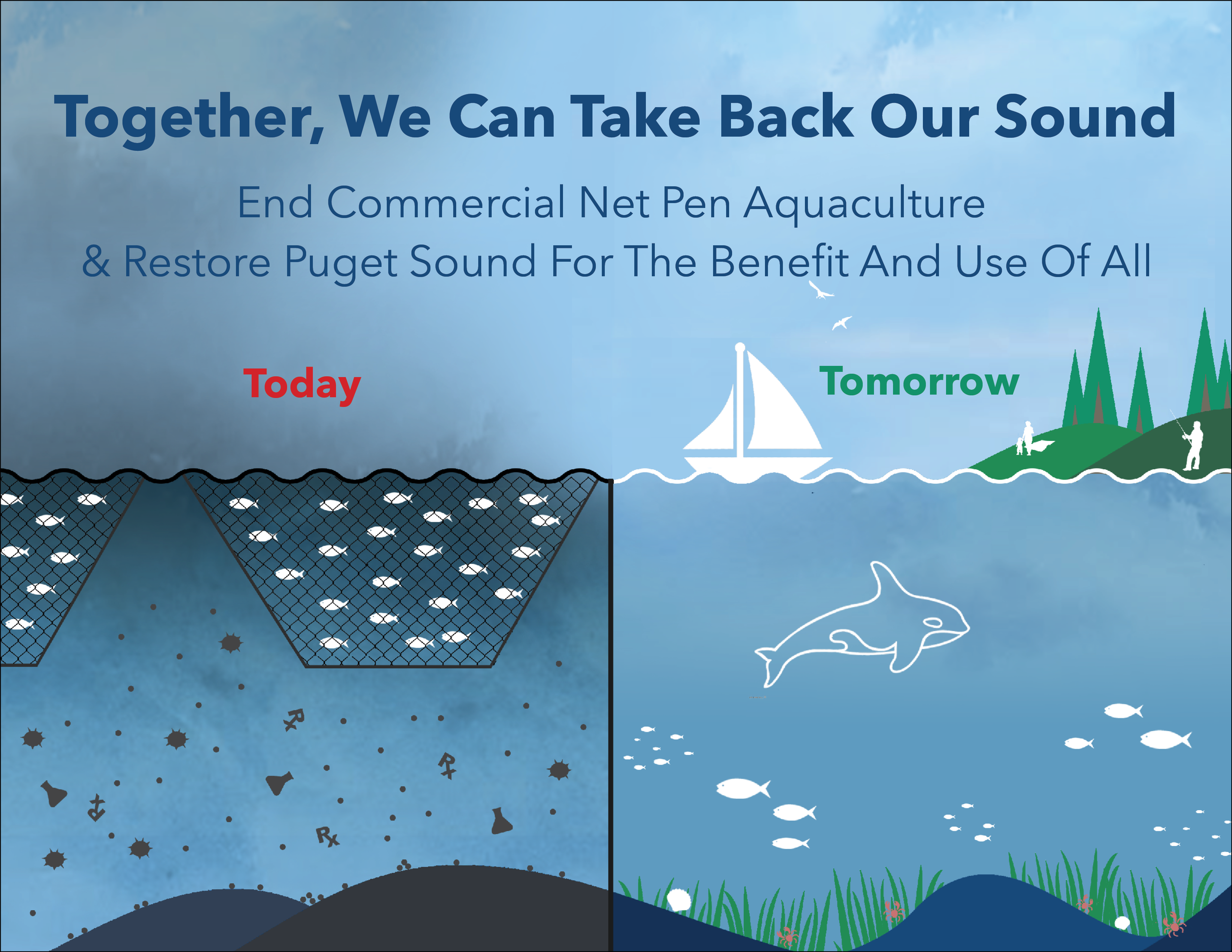Press Release
Legal Action Taken to Protect Threatened and Endangered Species from Industrial Finfish Aquaculture Operations
For Immediate Release
June, 23, 2022
Contact: Meredith Stevenson, 574-309-5620, mstevenson@centerforfoodsafety.org
SAN FRANCISCO—Yesterday, Center for Food Safety (CFS) and a coalition of marine conservation organizations, including trade groups, and the Quinault Indian Nation filed a notice of intent to sue the U.S. Army Corps for its failure to consider impacts to threatened and endangered species when it authorized construction of offshore finfish aquaculture facilities around the country. Industrial finfish aquaculture poses threats to marine ecosystems and endangered whales, salmon, sea turtles, and many other imperiled species, as well as to traditional fishing economies, Tribal Nations’ food security, and the public.
“Offshore industrial aquaculture is essentially factory farming of the sea because it has so many of the same problems we see with land-based factory farms. Large-scale aquaculture facilities wreak havoc on communities and the environment with their massive amount of waste and through their use of antibiotics, pesticides, and other toxic chemicals,” said Jenny Loda, staff attorney at CFS. “Despite acknowledging these threats, the Army Corps ignored its duty to examine how these impacts may harm
threatened and endangered species and contribute to their extinction risk.”
Following a Trump-era Executive Order pressing for rapid advancement and expansion of marine aquaculture facilities, the Army Corps issued a nationwide permit for construction of finfish aquaculture facilities in state and federal waters during the last few days of the Trump administration. In so doing, the Corps skirted much of the required environmental review, including its requirement to ensure that authorization of these facilities does not jeopardize the existence of imperiled species protected under
the Endangered Species Act. The nationwide permit authorizing construction of finfish aquaculture facilities has so far been adopted by Army Corps districts in California, Oregon, Washington, Florida, Texas, Georgia, North Carolina, New York, New Jersey, Philadelphia, and Virginia.
“In granting this far-reaching permit, the Corps failed to comprehensively evaluate even the most obvious and well-established harms that open water commercial net pen pose,” said Emma Helverson, executive director of Wild Fish Conservancy. “This is a reckless and misguided approach to managing species at risk of extinction and directly undermines efforts by local governments, Tribal Nations, and communities throughout the U.S. working tirelessly to protect and restore threatened and endangered species and their habitats.”
“We are very concerned about the use of Corps’ nationwide permit to push forward rapid development of industrial offshore finfish farming,” said Marianne Cufone, executive director of Recirculating Farms. “Each area of the marine environment is unique, and every industrial facility should be reviewed in detail, not fast tracked through a streamlined permit process.”
In addition to the excess nutrients and toxic chemicals associated with industrial finfish aquaculture, the facilities themselves threaten endangered species and other wildlife who may become entangled in the nets or lines or may be disturbed by their lights and noise pollution. Wild fish like endangered salmon are particularly at risk when farmed fish inevitably escape from aquaculture facilities. Escaped fish may outcompete wild fish for food and mates, and transfer diseases, viruses, and parasites to wild populations.
“Open ocean finfish aquaculture so far on the West Coast has been a failure, resulting in massive pollution, disease and parasite problems,” said Mike Conroy, executive director for the Pacific Coast Federation of Fishermen’s Associations, a commercial fishing industry group. “The Corps’ current defective and open-ended permit process will only give us more of the same,” Conroy added.
Rather than thoroughly considering how these potential harms may impact threatened and endangered species, the Corps relied on future analyses of impacts at the project-level once a facility is proposed. However, this does not exempt the Corps from considering the potential impacts of its nationwide authorization as a whole and the cumulative impacts all the potential future facilities taken together will have on endangered species—especially considering the vast ranges of some of the wildlife at issue like endangered whales, sea birds, and sea turtles. Relying on individual evaluations for facilities later down the line creates impermissible piecemeal decision-making that threatens the future survival of endangered species.
“While LA Waterkeeper does not oppose all aquaculture or mariculture activities, we have significant concerns with the streamlined general permit, which we believe will lead to the authorization of finfish aquaculture facilities along the Los Angeles coast, including near several Marine Protected Areas,” said Barak Kamelgard, staff attorney at LA Waterkeeper. “With the Corps failing to consider the adverse impacts of such operations on our diverse marine ecosystems, the risk of biodiversity loss, habitat degradation, and other harms to marine life is too great.”
“California’s Marine Protected Areas (MPAs) were meticulously planned to bolster ecosystem health, improve the resilience of fisheries, and give marine life a chance to rebound from habitat degradation and overfishing,” said Patrick McDonough, senior attorney at San Diego Coastkeeper. “Placing disruptive offshore fish farms near existing MPAs in Southern California will undermine the impact of California’s carefully crafted MPA network.”
###
The plaintiffs in this lawsuit are CFS, Don’t Cage Our Oceans Coalition, Wild Fish Conservancy, Quinault Indian Nation, Los Angeles Waterkeeper, San Diego Coastkeeper, Institute for Fisheries Resources / Pacific Coast Federation of Fishermen’s Associations, and Recirculating Farms Coalition. All plaintiffs are represented by counsel from Center for Food Safety.
Photo by Tavish Campabell, tavishcampbell.ca



















